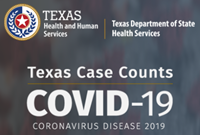CENTER, TX (March 27, 2023) – The Family Crisis Center of East Texas kicks off Sexual Assault Awareness Month in April with its ‘Things Aren’t Always What You See’ campaign to open the door to understanding sexual assault and raise public awareness of the extent of this crime. The agency is unveiling an outdoor art display Monday, April 3 at 3 p.m. at Cline Family Medicine, located at 630 Hurst St. Refreshments are provided. The outdoor installation features a door displayed with powerful imagery that ‘consent is key,’ as well as contact information for the agency. It’s meant to draw attention to the issue of sexual assault and raise awareness about the resources available for survivors. “By using a door as a symbol, the display aims to convey the message that there is always an opening for survivors to seek help and support,” said Whitney Burran, executive director of the Family Crisis Center of East Texas. “It will be a visual reminder to the community that getting consent before sexual contact is key and that the Family Crisis Center is there to offer assistance and resources to those who have been affected by this crime in Shelby County and in all the nine counties the agency serves.” The cities of Lufkin, Nacogdoches, Crockett, Hemphill, Center, San Augustine, Livingston and Coldspring will all have a door display for the public viewing during Sexual Assault Awareness Month this April. Sexual assault is a form of sexual violence that involves any unwanted sexual contact or activity. This can include touching, fondling, kissing, or any form of sexual activity that is forced or coerced without the person's consent. Sexual assault can happen to anyone, regardless of their gender, age or sexual orientation, is a serious violation of an individual's personal boundaries and rights and is a crime in all 50 states. Every 68 seconds an American is sexually assaulted, and it’s common for the abuse to occur behind closed doors, where the perpetrator can more easily control and intimidate the victim.
The perpetrator may use their power and control to manipulate and coerce the victim into sexual activity. This can occur in a variety of settings, including in homes, workplaces, schools and other private places where the victim may be isolated from help or support. Those who can never consent to sexual activity include someone who is underage (as defined by state laws), has an intellectual disability, is passed out (such as from drugs or alcohol), or unable to respond (such as from sleeping). According to the National Sexual Violence Resource Center (NSVRC), 1 in 5 men have experienced sexual violence in their lifetime, including rape, sexual coercion, and unwanted sexual contact. This statistic may be underreported as male survivors are often less likely to disclose their experiences due to social stigma, shame and disbelief. The emotional effects of a sexual assault—regardless of gender—can be long-lasting and far- reaching. Survivors can experience a range of emotions, including fear, anxiety, depression, shame, guilt, anger and a sense of isolation. “Many survivors can feel violated and powerless, with some experiencing a loss of trust in others and a sense of betrayal by society,” said Burran. “The emotional impact of sexual assault can impact a survivor’s ability to function in their daily life, leading to difficulty with work, school, and relationships.” Sexual assault is associated with an increased lifetime rate of attempted suicide. In women, a history of sexual trauma before age 16 years is a particularly strong influencing factor on attempted suicide, according to the Journal of the American Medical Association. “If we open the door to discussing sexual assault not just as statistics, but as an experience that affects mental and emotional well-being long after the incident occurred, we could unlock a conversation that opens the door for communities to respond with heightened awareness, education, and resources,” said Burran. Boilerplate The Family Crisis Center of East Texas (FCCET) is a non-profit organization that empowers survivors of domestic violence and sexual assault by providing crisis intervention and advocacy services. The FCCET also engages the community through education to build awareness and prevent domestic violence and sexual assault. Since 1979, the Janelle Grum Family Crisis Center of East Texas (Women’s Shelter of East Texas, Inc.) staffs a full array of professionals specializing in assistance for survivors of domestic violence and sexual assault. Those services included emergency shelter, a 24-hour crisis hotline, access to food and clothing, information and referral, legal and personal advocacy, child advocacy, counseling, support groups, transitional housing, homeless prevention financial assistance, child care assistance and more. ###
.jpg)



 Click For Louisiana
Click For Louisiana
